
CAPITOL RECAP: Masks returning at driver’s license facilities
By Capitol News Illinois
SPRINGFIELD – Masks will be required at driver’s license facilities in Illinois starting Monday, Secretary of State Jesse White announced Wednesday, and Gov. JB Pritzker said he is “looking at all the possible mitigations” amid another surge of COVID-19 infections.
The secretary of state’s announcement came one day after the Illinois Department of Public Health and the U.S. Centers for Disease Control and Prevention updated guidance to recommend individuals in areas with “substantial risk” or greater for the spread of COVID-19 should wear face coverings regardless of vaccination status.
“Substantial” risk occurs when new cases are between 50 to 99 per 100,000 people over a 7-day period, while “high” risk occurs when cases exceed that amount. A CDC county map, viewable at https://covid.cdc.gov/covid-data-tracker/#county-view, shows much of the state’s western half along the Missouri border is at high or substantial risk, as is most of southern Illinois.
The CDC also recommended masks be worn by all individuals in K-12 schools, and IDPH announced it “fully aligns” with the federal guidance. The governor warned Monday that districts disobeying guidance could face civil liability.
The Illinois State Board of Education echoed those comments in a statement Wednesday, saying, “School boards that choose not to implement public health guidance are putting their students and staff at risk and should consult with their insurers as to potential liability.”
White’s new mask requirement will also apply to the Illinois State Capitol and all secretary of state offices. The announcement came as the state reported 2,082 new COVID-19 cases, the most since May 7, and the case positivity rate rose to 4 percent, the highest since April 19.
Dr. Rochelle Walensky of the CDC said in a Tuesday briefing the main reason for the change in guidance is the fact that the COVID-19 delta variant – which makes up “eight in 10” of the COVID-19 cases that have had been sequenced in laboratories – is less predictable and more transmissible than previous versions of the virus. It’s also due to the fact that fewer people than expected have chosen to become vaccinated nationwide.
She said the guidance is aimed at protecting those who cannot be vaccinated, such as children 11 years of age and younger and those who are immunocompromised.
* * *
AFFORDABLE HOUSING BILL: Gov. JB Pritzker on Thursday, July 29, signed a measure aimed at increasing affordable housing investment in Illinois through tax credits.
House Bill 2621 aims to create incentives for building and maintaining affordable housing projects through investment of federal funds and tax credits. Pritzker signed the bill at the Hope Manor II affordable apartment complex in the Englewood neighborhood on the South Side of Chicago.
HB 2621, sponsored by Chicago Democrats Rep. Will Guzzardi and Sen. Mattie Hunter, aims to incentivize further development of housing complexes similar to Hope Manor II. It is expected to fund the development and preservation of up to 3,500 affordable rental homes and apartments by the end of 2024, according to the governor’s office.
The new law directs the Illinois Housing Development Authority to launch a COVID-19 Affordable Housing Program and directs $75 million in federal American Rescue Plan Act dollars to support the construction and rehabilitation of affordable rental housing in areas most impacted by the COVID-19 pandemic. Funds will be directed to projects in “disproportionately impacted areas” based on metrics such as unemployment rate, students on free lunch programs and poverty rates.
The measure also extends through 2026 an affordable housing tax credit that would have expired by the end of the year. That credit is for 50 percent of the value of a qualified donation to affordable housing developments. Donations for the program that began in 2001 have included land, buildings and funding.
Another provision in the bill directs chief county assessment officers to create special assessment programs to reduce the assessable property value for newly built and rehabilitated affordable housing developments that serve seven or more families. While the program is required in counties with more than 3 million inhabitants, which includes only Cook County, all other counties can opt out by passage of an ordinance.
* * *
LIHEAP EXPANSION: Gov. JB Pritzker also signed Senate Bill 265 Thursday, July 29, a measure expanding access to the state’s Low-Income Heating and Energy Assistance Program to undocumented individuals and prioritizing families with children under the age of 6 years old when it comes to distributing funds. LIHEAP helps low-income families pay heating, gas, propane and electricity bills.
The General Assembly dedicated more than $252 million to LIHEAP from the American Rescue Plan Act in its current-year operating budget.
The law is also changed to expand eligibility to households earning up to 60 percent of the median income level.
The formula for the fee on utility bills funding the LIHEAP program will change beginning in January 2022. It will be a 48-cent base fee for residences, and will increase by 16 cents each year in which at least 80 percent of LIHEAP funds are spent, capping at 96 cents for residences.
The bill will be 10 times the base amount for non-residential customers using fewer than 10 megawatts of electricity and 4 million therms of gas, and 375 times the base rate for those using above that amount.
Previously, those fees were 48 cents for residences, $4.80 for non-residential and $360 for higher-use non-residential bills.
The changes in the fee structure are aimed at doubling participation in the Percentage of Income Payment Plan program by 2024. That program allows utility customers to pay a certain amount of their income to a utility bill. The law is also expanded to include customers of smaller utilities.
* * *
SPECIAL NEEDS STUDENTS: Students with special needs will be able to finish their last year of high school regardless of when their birthday falls on the calendar, while those who lost a year or more of in-person schooling due to the pandemic and have since aged out of special education eligibility will be given another year to complete their schooling.
Those changes are the result of two bills Gov. JB Pritzker signed into law Wednesday while also announcing a $200 million investment of federal funds to expand the state’s early childhood education workforce.
Under federal law, students with special needs who have an individualized educational program, or IEP, are entitled to receive special education services through age 21. For many, that means their access to education services ends on the day before their 22nd birthday, regardless of where that date falls on the school calendar.
House Bill 40, by Chicago Democrats Rep. Fran Hurley and Sen. Bill Cunningham, changes that law in Illinois so that when those students turn 22, they can complete the school year and graduate at the same time as their other classmates. The new law takes effect immediately.
Pritzker signed House Bill 2748, which allows special education students who turned 22 while in-person instruction was interrupted by the COVID-19 pandemic to remain eligible for services through the end of the 2021-2022 school year.
Later in the day, Pritzker signed another education-related bill while also announcing that the state would invest $200 million of federal funds to provide additional training, mentorships and scholarships to bolster the state’s early childhood education workforce over the next two years.
Of that money, about $120 million will go toward financial support, including scholarships, to encourage child care workers to pursue advanced credentials, according to the governor’s office. Part of the money will also provide coaches, mentors and navigators with resources to help child care workers pursue their degrees.
House Bill 2878, by Rep. Katie Stuart, D-Edwardsville, and Sen. Cristina Pacione-Zayas, D-Chicago, also seeks to bolster the state’s early childhood education workforce by establishing a consortium among higher education institutions to develop ways that make it easier for child care workers to complete degree programs.
Under the bill, people who earn credentials as an early childhood educator as part of an associate’s degree program from a community college will automatically become eligible to transfer as a junior to a bachelor’s degree program at a public university.
* * *
LGBTQ RIGHTS BILLS: Gov. JB Pritzker signed a bill into law Tuesday, July 27, that repeals criminal penalties for people who transmit HIV to others.
House Bill 1063, by Rep. Carol Ammons, D-Urbana, and Sen. Robert Peters, D-Chicago, deletes language adopted in Illinois and many other states during the early days of the HIV epidemic that made it a felony for an individual to engage in certain activities such as unprotected sex, donating blood or tissue or sharing nonsterile intravenous needles knowing that he or she was infected with HIV.
At a bill signing ceremony in Chicago, Pritzker said the legislation is one more step his administration is taking to ensure equal rights for members of the LGBTQ community.
Other steps have included providing financial aid to transgender students who otherwise would not qualify for federal aid, requiring curriculum in public schools that includes contributions of the LGBTQ community, and expanding Medicaid to cover gender-affirming surgery.
Pritzker was joined at the ceremony by Lt. Gov. Juliana Stratton, Democratic leaders in the General Assembly who helped pass the bill, the AIDS Foundation of Chicago and other LGBTQ rights activists.
Peters noted that the law in Illinois did not require that a person actually transmit HIV to be convicted of the crime, only that they engaged in activity that could have exposed another person to the virus.
Pritzker also signed two bills making it easier for transgender individuals to change their names and gender identity on marriage certificates.
Senate Bill 139 establishes a process for individuals to change the gender language on their marriage certificates while House Bill 2590 establishes a uniform standard that county clerks must adhere to for name changes on marriage certificates. Those bills were sponsored by Sen. Sara Feigenholtz and Rep. Ann Williams, both Chicago Democrats.
In addition, Pritzker signed a House Bill 3709, which prohibits insurance companies from imposing restrictions on coverage of fertility medications and treatments, enabling LGBTQ individuals and single parents to receive those treatments under the same conditions as heterosexual individuals. It also reduces the waiting time to receive those treatments for women over age 35.
* * *
PRITZKER INTERVIEW: Gov. JB Pritzker isn’t considering using federal American Rescue Plan Act funding to pay down a multi-billion-dollar Unemployment Insurance Trust Fund deficit, he told Capitol News Illinois in a one-on-one interview Wednesday, July 21.
The reason Pritzker won’t consider using federal ARPA funds on the $4.2 billion Trust Fund deficit, he said, is because he did not believe it a permissible use of the funding, and he is hopeful that the federal government will provide aid or rule changes to accommodate the 17 states that have outstanding federal borrowing balances in their trust funds amounting to $54 billion cumulatively.
“You can’t actually use ARPA funds according to the rules of ARPA. You can’t repay any debt that’s already owed to the federal government,” Pritzker said in the interview with CNI, citing the state’s initial plan to repay pandemic related Municipal Liquidity Facility funding with the ARPA funds – a use later ruled impermissible.
Interim U.S. Treasury rules for ARPA funding and the plans of dozens of other states, however, contradict the governor’s statement on the use of ARPA funds to repay the Unemployment Trust Fund deficit. The Associated Press reported on May 27 that “at least 29 states already have transferred or proposed to use a total of more than $12 billion of federal coronavirus aid for their unemployment trust funds.”
Per the interim final rule, published May 17 in the Federal Register, “recipients may make deposits into the state account of the Unemployment Trust Fund … up to the level needed to restore the pre-pandemic balances of such account as of January 27, 2020, or to pay back advances received under Title XII of the Social Security Act.”
During a recent trip to Washington, D.C., Pritzker said, he spoke to President Joe Biden and Illinois’ congressional leaders to seek further federal assistance for the Trust Fund. He reiterated that Wednesday, saying federal aid could include legislation, rule changes or other actions.
Business groups last week called on Pritzker to reinstate more stringent work search requirements for Illinoisans who are on unemployment, to end a $300 federal monthly payment to unemployed individuals earlier than its September end date, and to infuse the Trust Fund with federal ARPA dollars.
But Pritzker said he is hopeful federal action might come through before that time period. Earlier this month, Illinois’ U.S. Sen. Dick Durbin, a Democrat, said he expects Congress to begin debating the next steps on unemployment as the current federal boost to benefits ends in September.
For his part, Pritzker said he has expanded child care availability in an effort to encourage a return to the workforce and alleviate stresses on the system.
* * *
PRITZKER ON PANDEMIC: Gov. JB Pritzker also spoke to Capitol News Illinois on his pandemic plans Wednesday, July 21, as case counts rise.
Pritzker said his medical advisers tell him the main focus for monitoring disease spread should be intensive care bed and hospital bed usage. But he has not set a concrete metric for those numbers that would trigger another round of mitigations.
Those numbers were increasing statewide as of Wednesday night, although they were still far off pandemic highs. There were 119 ICU beds and 628 hospital beds in use by COVID-19 patients as of Wednesday. The state’s 3 percent case positivity rate was a high since May 7, five times its June 27 rate of 0.6 percent. The 1,993 new cases reported Thursday were a high since May 5.
“What I can tell you is getting people vaccinated is the most important thing we can do right now, encouraging people to wear masks when they’re indoors in crowded areas, encouraging children who are under 12 to wear masks when they go to school, ask parents to have them wear masks when they go to school,” Pritzker said. “But unvaccinated people make up 99% of all the deaths that are occurring in the state of Illinois.”
Still, the governor said he wasn’t considering vaccine passport requirements at this time.
Pritzker also touched on the state’s fiscal outlook and whether an energy bill is likely to pass the General Assembly this year. You can listen to the full podcast here.
* * *
MENTAL HEALTH BILLS: Illinois residents will soon have greater access to mental health services under measures Gov. JB Pritzker signed into law Friday, July 23.
Starting Jan. 1, most insurance companies doing business in Illinois will be required to provide their beneficiaries with timely and proximate access to treatment for mental, emotional, nervous or substance abuse disorders. That means beneficiaries will not have to wait more than 10 business days to see a provider after requesting an initial appointment or 20 business days after requesting a repeat or follow-up appointment.
In addition, insurers will be required to maintain an adequate network of mental health care providers so that beneficiaries in Cook County and the surrounding collar counties will not have to travel more than 30 miles or 30 minutes from their home to see a provider. That limit expands to 60 miles or 60 minutes in other areas of Illinois.
Insurers will also have to make exceptions to out-of-network copay requirements if no in-network providers are available within those time and distance limits.
Those new requirements are contained in Senate Bill 471, which was sponsored by Sen. Laura Fine, D-Glenview, and Rep. Lindsey LaPointe, D-Chicago. The new law applies to health policies that are subject to state regulation, including Medicaid plans. It does not apply to large group health plans that are regulated under the federal Employee Retirement Income Security Act, or ERISA.
Also signed into law Friday was House Bill 212, which calls on the state’s Children’s Mental Health Partnership to develop recommendations for ensuring that all youth in Illinois have access to mental health education and mental health care in a school setting.
The Children’s Mental Health Partnership was established in 2003 to advocate for children’s mental health. It is made up of the secretary of human services, the state superintendent of education, and the directors of the Department of Children and Family Services, Healthcare and Family Services, Public Health and Juvenile Justice as well as the head of the Illinois Violence Prevention Authority, the attorney general and representatives of various stakeholder groups.
Pritzker also signed House Bill 33, prohibiting life insurance companies from denying coverage or raising premiums for people solely because they have undergone substance abuse treatment. It also prohibits them from discriminating based on whether an applicant has been prescribed an opioid antagonist drug such as Narcan, also known as Naloxone.
That bill takes effect Jan. 1.
Meanwhile, another bill signed Friday requires school districts, starting immediately, to provide contact information for the National Suicide Prevention Lifeline and for the Crisis Text Line on the back of student identification cards issued by the school district.
* * *
TIF DISTRICTS: Another new law will provide taxpayers with more information about how well tax increment financing districts, or TIFs, are performing.
TIFs are an economic development tool aimed at clearing up blighted areas by allowing local governments to dedicate the new sales tax and property tax revenues generated by a redevelopment project to pay for improvements within the district.
Those can include costs associated with redeveloping substandard, obsolete or vacant buildings, financing public infrastructure, cleaning up polluted areas, improving the viability of downtown business districts, rehabilitating historic properties and providing infrastructure needed to develop a site for new industrial or commercial use.
As of 2015, there were 1,238 active TIF districts in the state, according to TIF Illinois. According to Illinois Comptroller Susana Mendoza, who pushed for the bill, municipalities have been required to report certain financial information about the districts to the comptroller’s office, but there has been little information available about how effective they have been in meeting their goals.
House Bill 571, by Rep. Jonathan Carroll, D-Northbrook, and Sen. Ann Gillespie, D-Arlington Heights, begin reporting additional information including the number of jobs originally projected to be created in each district along with the number of jobs actually created; the actual amount of new revenue created compared to the amount originally forecast; and the stated rate of return for the project, which must be independently verified by a third party chosen by the municipality.
Other bills signed into law Friday included:
Senate Bill 107, by Sen. Sara Feigenholtz and Rep. Ann Williams, both Chicago Democrats, streamlines adoption processes by allowing state courts in Illinois to exercise jurisdiction in complex adoption cases in which one of more of the birth parents resides out of state. It also removes the residency requirement in cases involving the adoption of an adult by a former stepparent.
House Bill 279, by Carroll and Sen. Julie Morrison, D-Lake Forest, requires oral medications to carry warning labels if they contain gluten.
House Bill 122, by Rep. Dan Didech, D-Buffalo Grove, and Sen. Meg Loughran Cappel, D-Shorewood, prohibits utility companies – including telephone, cellular telephone, television, internet, energy, medical alert systems and water services – from charging early termination fees for customers who die before the end of a contract.
House Bill 3783, by Rep. Carol Ammons and Sen. Scott Bennett, both Champaign Democrats, provides that only trained employees are allowed to work on coal ash cleanup projects.
House Bill 58, by Didech and Johnson, limits to $10 the fee that county recorders can charge property owners for removing illegal restrictive covenants from recorded property deeds.
And Senate Bill 605, by Sen. Jacqueline Collins, D-Chicago, and Rep. Barbara Hernandez, D-Aurora, requires schools to develop policies on truancy and chronic absences each year and report them to families, including information on chronic truancy. That law takes effect July 1, 2022.
* * *
REDISTRICTING LAWSUIT: Attorneys for the Mexican American Legal Defense and Educational Fund, or MALDEF, have filed an amended complaint in federal court in a lawsuit that seeks to block a newly-enacted legislative redistricting plan from going into effect.
The amended complaint, filed Wednesday in the Northern District of Illinois, is intended to address some of the issues raised in a recent motion by Democratic leaders in the General Assembly to dismiss the case.
Specifically, the new complaint argues that each of the individually named plaintiffs – Julie Contreras, Irvin Fuentes, Abraham Martinez, Irene Padilla and Rose Torres – live within districts that are malapportioned under the new maps and that, as a result, their votes would be diluted in the 2022 elections.
The new complaint also argues that the Illinois State Board of Elections and each of its individual members are responsible for administering the elections.
The suit, which was filed June 10, seeks a declaration that the new maps violate the U.S. Constitution’s one person-one vote requirement because they are based on population estimates from the Census Bureau’s American Community Survey rather than official numbers from the 2020 decennial census. It also asks the court to bar the State Board of Elections from administering next year’s races based on those maps.
It is one of two lawsuits challenging the new maps and the cases are being heard together by a three-judge federal panel in Chicago. The other suit was filed by the top two Republican leaders in the General Assembly.
Both lawsuits also name House Speaker Emanuel “Chris” Welch, of Hillside, and Senate President Don Harmon, of Oak Park, as defendants.
The new maps were approved along partisan lines in the final days of the spring legislative session. Democratic leaders argued that the use of ACS data was appropriate because official census numbers won’t be available until mid-August, long past the June 30 date set in the Illinois Constitution for lawmakers to approve a redistricting plan.
After that date, under the state constitution, the process is handed to a bipartisan commission where partisan advantage could be determined by a random draw.
The next hearing in the case is scheduled for Tuesday, Aug. 24, about one week after the official census numbers are expected to be released. Trial in the case is tentatively set for Sept. 27-29.
Capitol News Illinois is a nonprofit, nonpartisan news service covering state government and distributed to more than 400 newspapers statewide. It is funded primarily by the Illinois Press Foundation and the Robert R. McCormick Foundation.
Local News
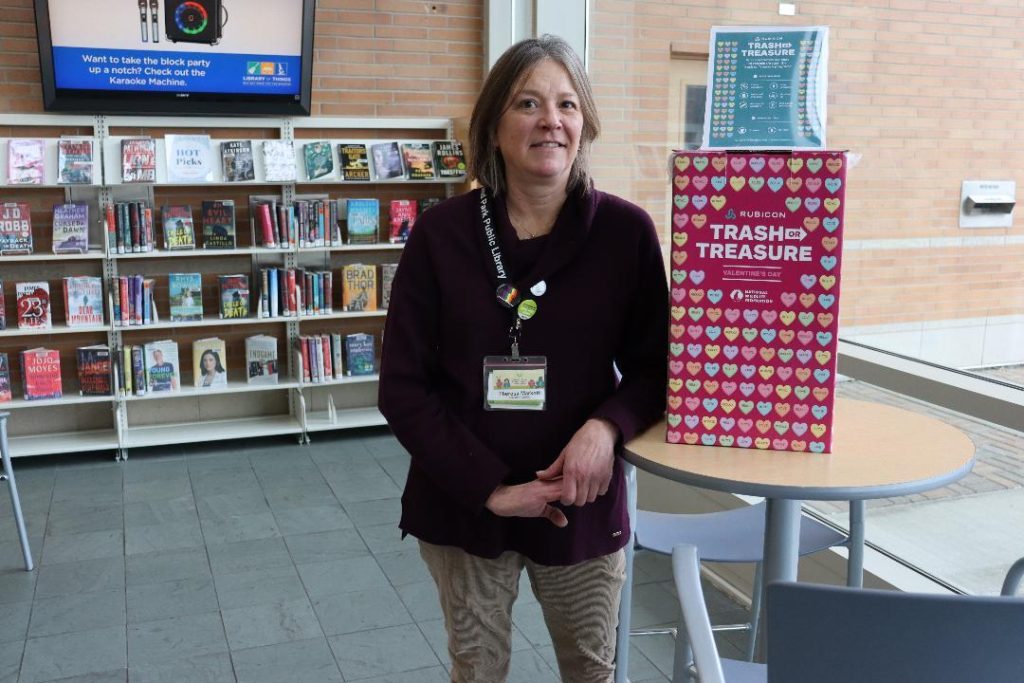
Orland Park Library collecting candy wrappers
Spread the loveBy Kelly White Candy has taken on a whole new life at one local library. The Orland Park Public Library, 14921 S. Ravinia Ave., Orland Park, is happy to announce the launch of its very first Trash or Treasure candy wrapper recycling campaign. The Trash or Treasure program helps reduce the waste that…
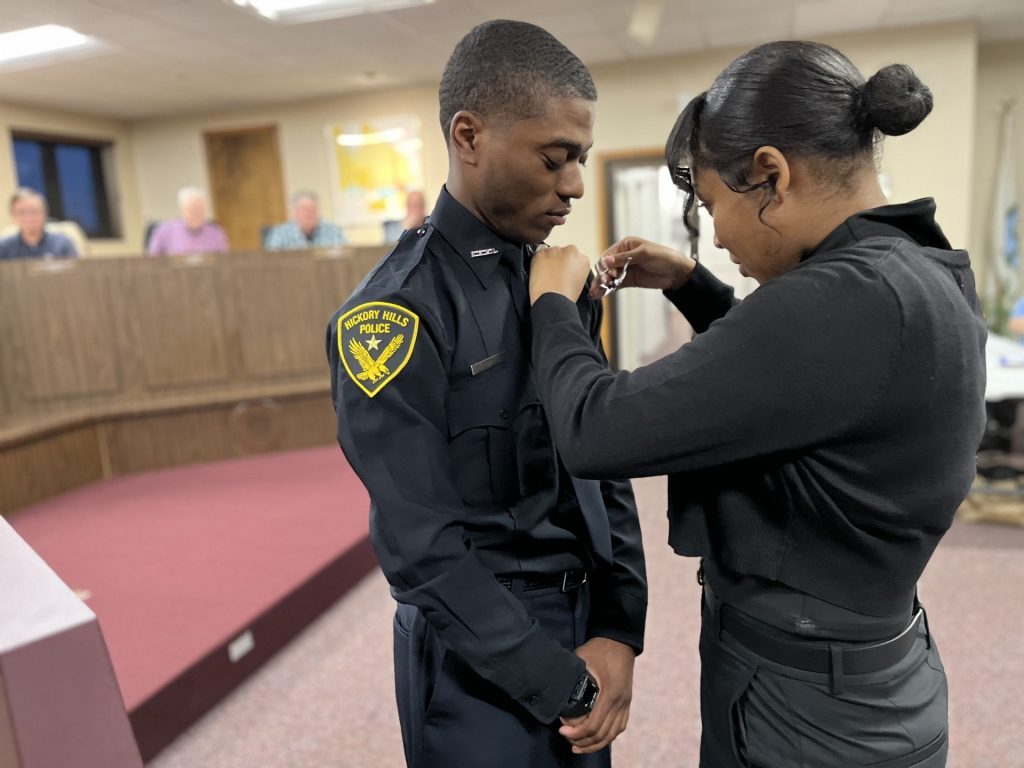
Hickory Hills adds new police officer
Spread the loveBy Nuha Abdessalam Hickory Hills Police Chief Jason Bray welcomed Andre Showers as the city’s newest police officer during last week’s city council meeting. Aldermen and the community at the April 11 meeting helped celebrate the induction of the Showers, 21. He’s an Army veteran and a 2023 Cook County Correctional Camp graduate…

Marist celebrates cultural diversity
Spread the loveBy Kelly White Marist High School appreciates the wide array of culture that walks its campus hallways on a daily basis. In order to celebrate, the high school, 4200 W. 115th St., Chicago, hosted its second annual Celebration of Culture on March 14. During the free event, students, faculty and staff represented their…
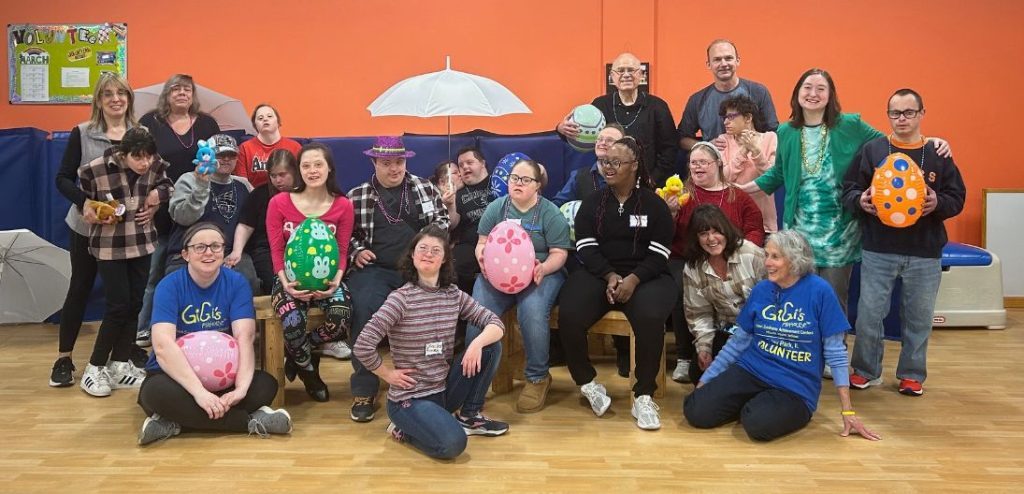
Palos Heights Knights of Columbus donate to GiGi’s Playhouse
Spread the loveGrand Knight John Laskey and Past Grand Knight Brian Mellenthin of St. Theodore Guerin Knights of Columbus Council 14057 presented a check for $1,500 to GiGi’s Playhouse of Tinley Park, one of several donations to local groups resulting from the Knights of Columbus’ Fall Tootsie Roll Drive. One of the most recognizable activities…
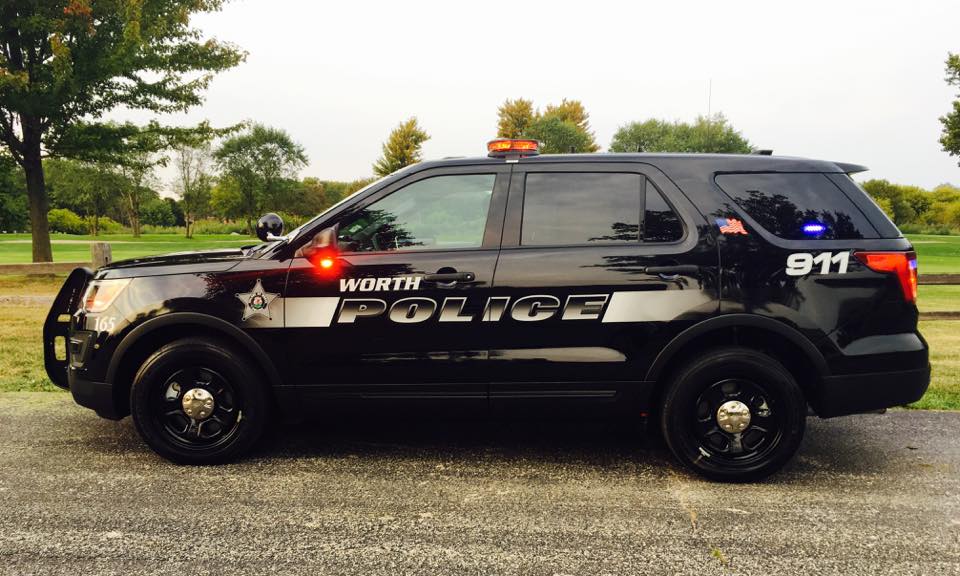
Worth police join task force to combat auto thefts
Spread the loveBy Joe Boyle An agreement has been reached between the villages of Worth and Thornton regarding participation in the Illinois Statewide Auto Theft Task Force. Worth Police Chief Tim Denton said the approval of the memorandum to participate in the task force is necessary. “It’s no secret that there has been an increase…
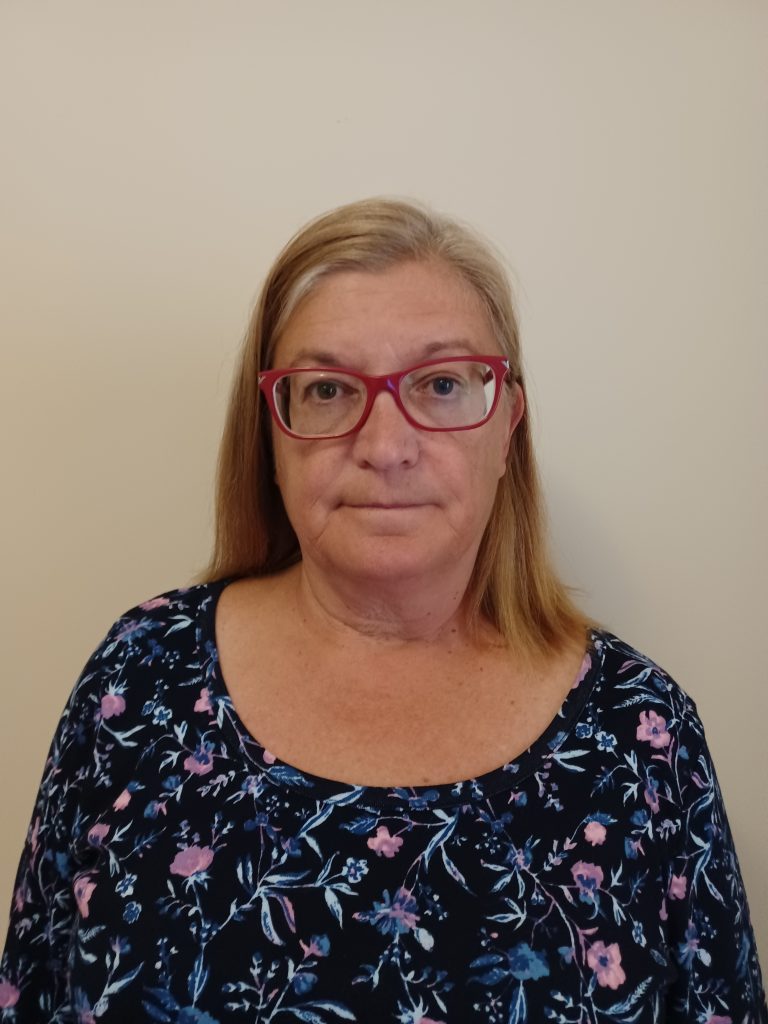
A simple idea for Earth Day
Spread the love. By Mary Stanek Your correspondent in Archer Heights and West Elsdon 3808 W. 57th Place • (773) 517-7796 . Moving right along through April, as the days get longer and nicer, time will start to go by faster. We have Earth Day on April 22 and the start of Passover at sunset.…

Bingo at St. Clare was something to yell about
Spread the love. Kathy Headley Your correspondent in Chicago Lawn and Marquette Manor 6610 S. Francisco • (773) 776-7778 . Recently I mentioned a bingo fundraiser the Augustinian Young Adults of St. Rita of Cascia Parish were holding. This was their first attempt at a bingo and they put on a really nice event. Held…

One thing is certain: life goes on
Spread the love. Peggy Zabicki Your correspondent in West Lawn 3633 W. 60th Place • (773) 504-9327 . I get a lot of calls from residents who are discouraged about our neighborhood. There are so many car accidents, shootings and violent crimes being committed in West Lawn and surrounding areas. It certainly is challenging to stay hopeful and positive. Here is a paragraph…

Biz groups battle over names, logos
Spread the love. UBAM, MCC trade barbs . By Dermot Connolly and Tim Hadac The leader of one Midway-area business association is accusing the other of bad faith, and the leader of the other is scratching her head over the dustup. United Business Association of Midway Executive Director Anita Cummings recently claimed that a rival…
Neighbors
Sorry, we couldn't find any posts. Please try a different search.






